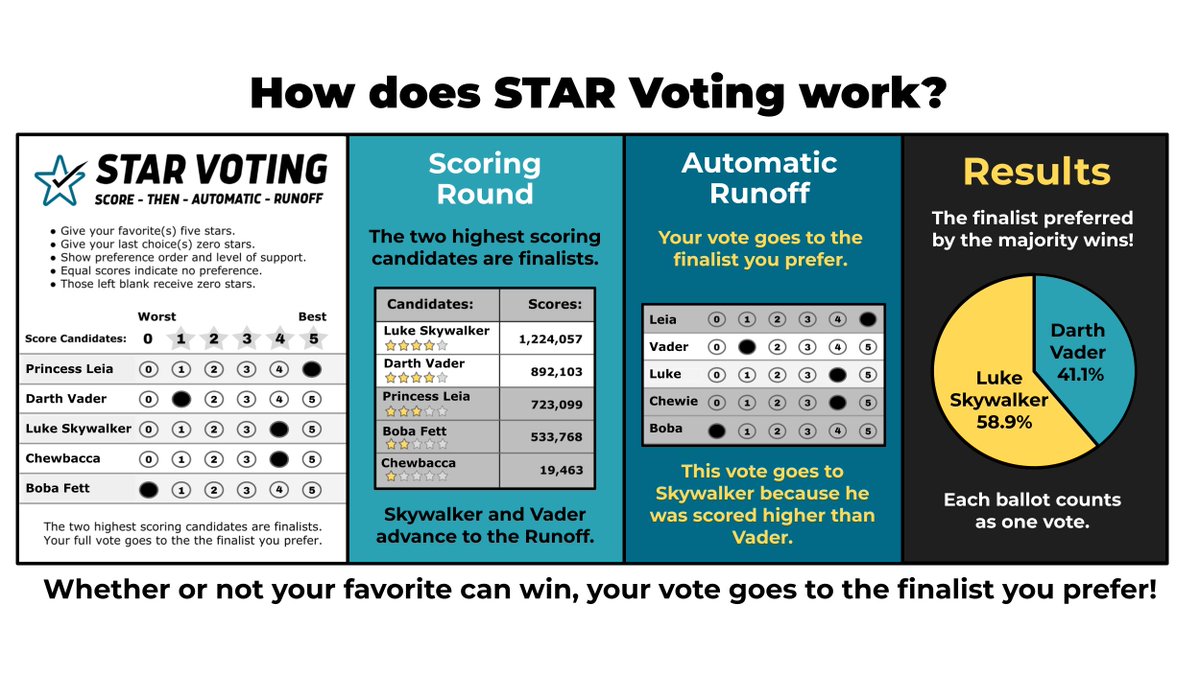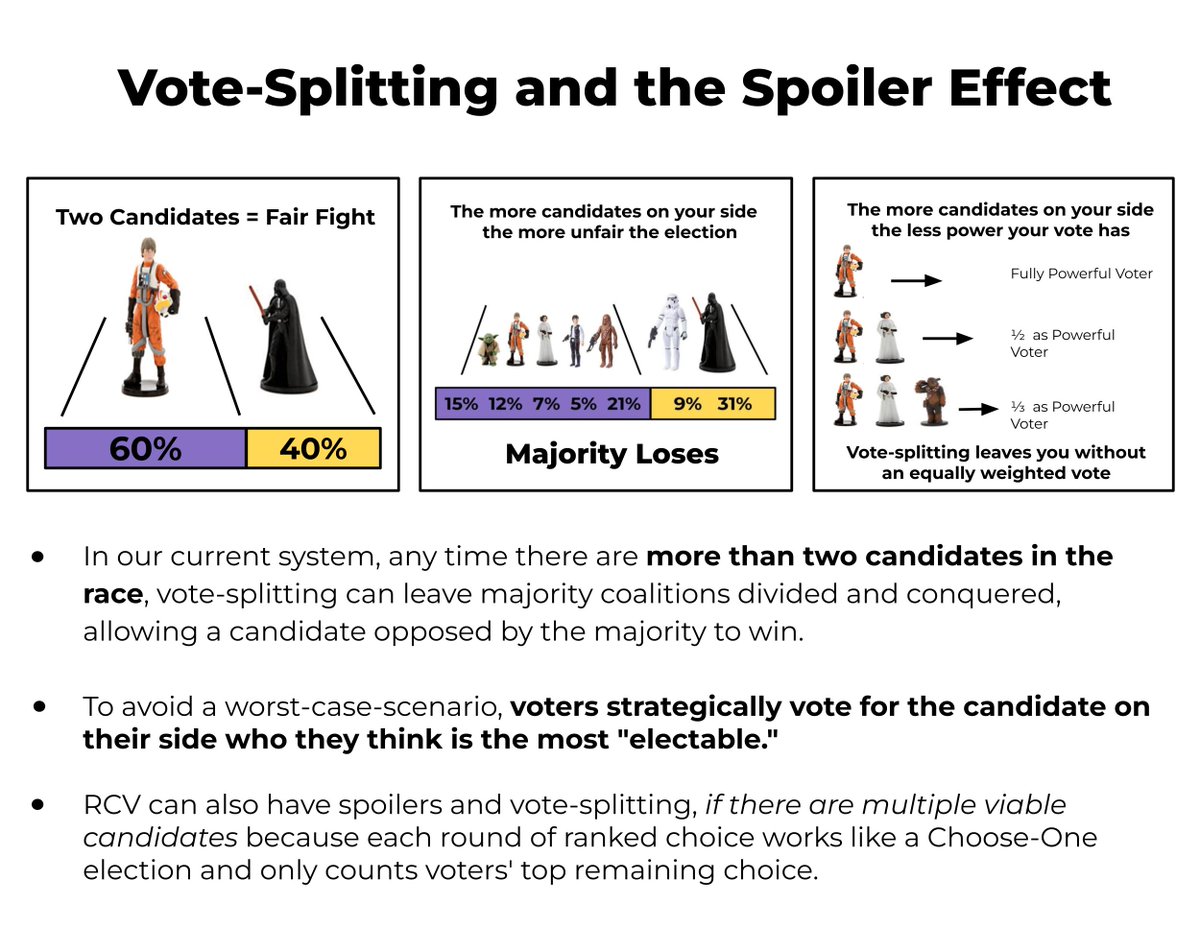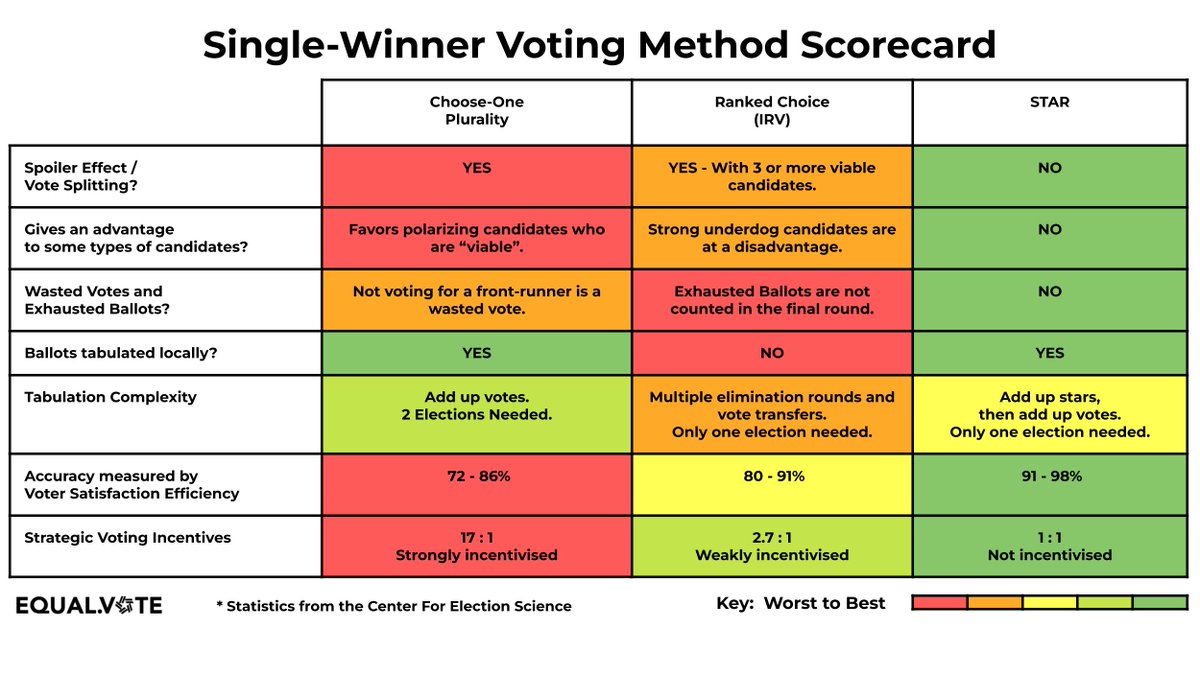
After 11 failed attempts to elect a #SpeakerOfTheHouse, it's clear that a true majority winner does not exist. That said, a better voting method could end the stalemate and find a representative, majority preferred winner. Let's review 2 options: #RankedChoice and #STARVoting.
🧵
🧵
A common claim about Ranked Choice Voting (#RCV) is that it always elects majority winners. This claim is objectively false. No voting method can guarantee a majority in an election with more than 2 candidates because a true majority may not always exist.
This is demonstrated clearly in the current #HouseSpeakerVote. With 3+ polarized factions, no faction has a true majority, and as we can see, the Republican factions are unwilling or unable to coalition around one candidate.
The right flank preventing Representative McCarthy from winning a @GOPLeader majority is doing so intentionally, for leverage, so there's no reason to expect they would rank McCarthy 2nd on their ballots. Without those 2nd choice votes, McCarthy would not receive a true majority.
Democrats would also be unlikely to want to rank a Republican 2nd because their candidate is the top vote-getter. Even if they did, their votes would never transfer. In RCV, if a candidate makes it to the final round and loses, their supporters' next choices are never counted.
RCV works just like a series of Choose One elections: only 1 rank is counted at a time, so vote-splitting can happen in any round. Vote-splitting can still be leveraged in RCV by the withholding 2nd choices — but with the far right bullet voting, the Democrats would win.
To Dems, winning Speaker may sound great, but the same issue could happen in reverse if progressives were to dig in their heels.
As we've seen in years past (think Nader and Perot), the Spoiler Effect has cost both parties the presidency.
What's the solution?
Enter #STARVoting
As we've seen in years past (think Nader and Perot), the Spoiler Effect has cost both parties the presidency.
What's the solution?
Enter #STARVoting

Under STAR Voting, House Representatives would score each candidate for Speaker from 0 up to 5 stars. The two candidates with the highest scores would be finalists. Each Rep's one full vote would go to the finalist they scored higher.
The finalist with the most votes wins.
The finalist with the most votes wins.

STAR Voting eliminates vote-splitting, which is the tool currently being leveraged to paralyze the House. RCV does not.
Vote-splitting can trainwreck democracy, giving small factions outsized power. STAR still empowers minority voices, but it elects representative winners.
Vote-splitting can trainwreck democracy, giving small factions outsized power. STAR still empowers minority voices, but it elects representative winners.

With STAR, far right voters would be able to prevent their worst-case scenario by giving their lesser evil 1 star and their last choice 0. This would allow those voters to leverage their disapproval while still ensuring that the Republican majority would maintain House control.
STAR Voting would break the gridlock and allow the House to get to work. It could do this with the current set of candidates, but STAR Voting would also empower new, potentially better, consensus candidates to step up as well because it's accurate with any number of candidates.
The US is locked in a hyper-polarized doom loop and it's going to take the best reform we have to break the cycle. That reform is #STARVoting.
STAR Voting empowers voters to vote honestly and gives us the nuance we need to show our preferences, without forcing us to support candidates we don't like.
To learn more and get involved, head to
starvoting.org
To learn more and get involved, head to
starvoting.org
• • •
Missing some Tweet in this thread? You can try to
force a refresh









